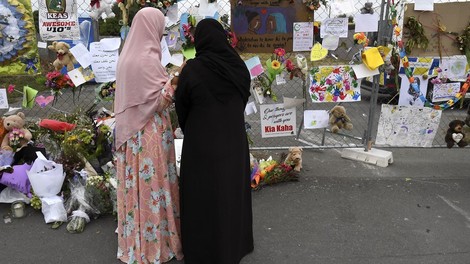Your podcast discovery platform
Curious minds select the most fascinating podcasts from around the world. Discover hand-piqd audio recommendations on your favorite topics.

piqer for: Doing Good Globalization and politics Global finds
Currently, I am a Fellow for the Entrepreneurship for Good Program (Future of Audio Entertainment Challenge) at The DO School. I am a media professional, social entrepreneur and storyteller who experiments with media and art to document life, and I have worked with nonprofits, governments and campaigns internationally. I have an M.Sc. in Social & Cultural Anthropology from the London School of Economics & Political Science.
Author Says New Zealand Massacre Points To A Global Resurgence Of 'Extremism'
On NPR's Fresh Air, Terry Gross interviews J. M. Berger, an expert on extremism, particularly in online spaces, and an author who has written extensively about both white nationalist movements and ISIS and other jihadi groups. He breaks down the elements within extremism and their trajectory:
Extremist ideologies have three major components. One is identity. So that's the group you're in and the group you hate. One is a crisis narrative. So that's an argument that things are happening in the world, usually threatening but not always, that require decisive action to protect your identity. What we call the in-group is the group that you belong to. So the crisis narrative then leads to a solution narrative. And the solution for extremists is hostile action against what we call the out-group, which is the enemy identity.
Putting this into perspective with the recent terrorist act and hate crime that killed at least 50 of New Zealand's Muslim community, Berger says it's no surprise that the perpetrator is from Australia—a country "with political parties that are more overtly radical right kind of leaning" and "a problem with white nationalism."
However, white nationalism cannot sustain itself without figures in positions of power that reinforce fear and the narratives of identity and crisis such as Donald Trump. As alt-right movements are very fragmented, they need a figure to amass them into a common cause. If one needs evidence, the trends can be observed on social media where the movement has unified under the popularly used hashtag, #MAGA, and/or if the account user refers to himself as a "Trump supporter."
As expected, in New Zealand's case, the shooter did gain inspiration from white nationalist views, anti-immigration stances, and figures that either blatantly or quietly supported violence and encouraged fear.
This episode is not just about white nationalists or terrorism, but acknowledging a wave that is establishing itself and what this means for our future.
